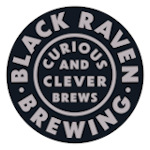Research Reveals Link Between Beer and Bone Health.

Back in the 1920s Guinness ran a controversial advertising campaign that boldly stated, “Guinness is good for you. Gives you strength!” It was controversial because some people were outraged by the mere suggestion that beer was in some way healthy. Guinness softened its position, officially stating that it was not a medically-based claim.
Though I’m not sure how much any of us really believe it, we’d all like to think that drinking beer is good for our health. Don’t give up hope. What once seemed like ridiculous, controversial attestations about the medical virtues of beer are now warranting more merit as researchers continue to find evidence to support the claim Guinness made 90 years ago.
The link between prostate health and hops was well publicized back in December of last year. At the Cancer Prevention Research Conference in Houston, researchers presented the results of a study that suggested hops play an important roll in the prevention of prostate cancer. Sure, that is a simplified version of the report, but the study definitely suggested that the consumption of hops –including hops in beer– may very well have positive medical implications.
Today we learn that researchers have found a link between beer and bone health. The study reveals that malt and hops contain a high level of silicon and therefore can be associated with improved bone health. Details below.
Study Finds Beer is a Rich Source of Silicon, May Help Prevent Osteoporosis
A new study suggests that beer is a significant source of dietary silicon, a key ingredient for increasing bone mineral density. Researchers from the Department of Food Science & Technology at the University of California, Davis studied commercial beer production to determine the relationship between beer production methods and the resulting silicon content, concluding that beer is a rich source of dietary silicon.
Details of this study are available in the February issue of the Journal of the Science of Food and Agriculture, published by Wiley-Blackwell on behalf of the Society of Chemical Industry.
“The factors in brewing that influence silicon levels in beer have not been extensively studied” said Charles Bamforth, lead author of the study. “We have examined a wide range of beer styles for their silicon content and have also studied the impact of raw materials and the brewing process on the quantities of silicon that enter wort and beer.”
Silicon is present in beer in the soluble form of orthosilicic acid (OSA), which yields 50% bioavailability, making beer a major contributor to silicon intake in the Western diet. According to the National Institutes of Health (NIH), dietary silicon (Si), as soluble OSA, may be important for the growth and development of bone and connective tissue, and beer appears to be a major contributor to Si intake. Based on these findings, some studies suggest moderate beer consumption may help fight osteoporosis, a disease of the skeletal system characterized by low bone mass and deterioration of bone tissue.
The researchers examined a variety of raw material samples and found little change in the silicon content of barley during the malting process. The majority of the silicon in barley is in the husk, which is not affected greatly during malting.
The malts with the higher silicon contents are pale colored which have less heat stress during the malting process. The darker products, such as the chocolate, roasted barley and black malt, all have substantial roasting and much lower silicon contents than the other malts for reasons that are not yet known.
The hop samples analyzed showed surprisingly high levels of silicon with as much as four times more silicon than is found in malt. However, hops are invariably used in a much smaller quantity than is grain. Highly hopped beers, however, would be expected to contain higher silicon levels.
No silicon was picked up from silica hydrogel used to stabilize beer, even after a period of 24 hours and neither is there pick up from diatomaceous earth filter aid.
The study also tested 100 commercial beers for silicon content and categorized the data according to beer style and source. The average silicon content of the beers sampled was 6.4 to 56.5 mg/L.
“Beers containing high levels of malted barley and hops are richest in silicon,” concludes Dr. Bamforth. “Wheat contains less silicon than barley because it is the husk of the barley that is rich in this element. While most of the silicon remains in the husk during brewing, significant quantities of silicon nonetheless are extracted into wort and much of this survives into beer.”
*******************Article: “Silicon in Beer and Brewing.” Troy R. Casey and Charles W. Bamforth. Journal of the Science of Food and Agriculture Published Online: February 8, 2010 (DOI: 10.1002/JSFA.3884); Print Issue Date: February 2010

































I agree with you, I’ve read a lot of articles about how beers affect the human health actually beer is good for the health just drink moderately.